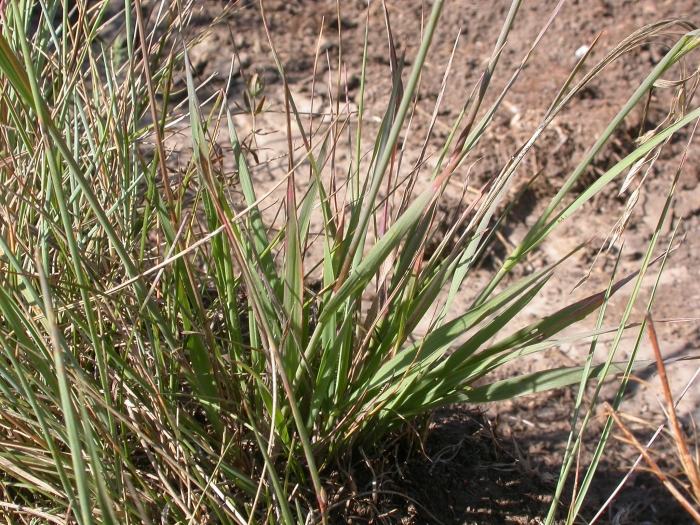Nodding Brome
(Bromus anomalus)
Nodding Brome (Bromus anomalus)
/
/

Matt Lavin
CC BY-SA 2.0
Image By:
Matt Lavin
Recorded By:
Copyright:
CC BY-SA 2.0
Copyright Notice:
Photo by: Matt Lavin | License Type: CC BY-SA 2.0 | License URL: https://creativecommons.org/licenses/by/2.0/ | Uploader: Matt Lavin | Publisher: Flickr |

















Estimated Native Range
Summary
Bromus anomalus, commonly known as Nodding Brome, is a deciduous perennial grass native to open woodlands, meadows, and grasslands in the western half of North America and parts of Central America. It typically grows to a height of 1-2 feet (0.3-0.6 meters) and a width of 0.1-0.4 feet (0.03-0.1 meters). This grass is characterized by its nodding inflorescences and fine-textured foliage that adds a delicate, airy appearance to garden settings. The flowers, which appear in late spring to early summer, are not particularly showy but do provide a subtle charm with their gentle sway in the breeze.
Nodding Brome is valued for its drought tolerance and ability to thrive in less fertile soils, making it a suitable choice for xeriscaping and naturalized areas. It is often used in wildflower meadows, as a filler in mixed borders, or for erosion control on slopes. Gardeners appreciate its low water requirements and adaptability to a range of soil types, provided they offer good drainage. While it prefers full sun or part shade, it is relatively flexible regarding light conditions. There are no widely recognized cultivars of this species in the horticultural trade, but its natural form is well-suited to informal and native plant gardens. Potential problems include susceptibility to rust and smut diseases, though these are generally not severe. Care should be taken to prevent it from becoming invasive in areas where conditions are ideal for its spread.CC BY-SA 4.0
Nodding Brome is valued for its drought tolerance and ability to thrive in less fertile soils, making it a suitable choice for xeriscaping and naturalized areas. It is often used in wildflower meadows, as a filler in mixed borders, or for erosion control on slopes. Gardeners appreciate its low water requirements and adaptability to a range of soil types, provided they offer good drainage. While it prefers full sun or part shade, it is relatively flexible regarding light conditions. There are no widely recognized cultivars of this species in the horticultural trade, but its natural form is well-suited to informal and native plant gardens. Potential problems include susceptibility to rust and smut diseases, though these are generally not severe. Care should be taken to prevent it from becoming invasive in areas where conditions are ideal for its spread.CC BY-SA 4.0
Plant Description
- Plant Type: Grass
- Height: 1-2 feet
- Width: 0.1-0.4 feet
- Growth Rate: Moderate
- Flower Color: N/A
- Flowering Season: Spring
- Leaf Retention: Deciduous
Growth Requirements
- Sun: Full Sun, Part Shade
- Water: Low
- Drainage: Fast, Medium
Common Uses
Bird Garden, Butterfly Garden, Low Maintenance
Natural Habitat
native to open woodlands, meadows, and grasslands in the western half of North America and parts of Central America
Other Names
Common Names: Nodding Bromegrass
Scientific Names: , Bromus anomalus, Bromus meyeri, Bromopsis anomala, Bromus ciliatus var. minor, Bromus porteri var. havardii, Bromus kalmii var. major, Zerna anomala,
GBIF Accepted Name: Bromus anomalus Rupr. ex E.Fourn.